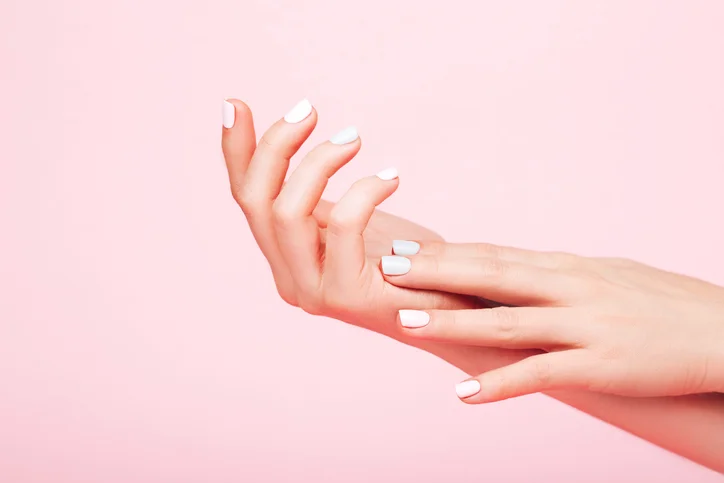How to keep youthful-looking hands
/How to keep youthful-looking hands
You may spend tons of money and time caring for the skin on your face. But the body part giving away your age the fastest is your hands. From opening jars, using them to drive, tying shoes, to holding a baby, our hands do so much throughout the day it’s no wonder they show the signs of time well before we are old.
Obviously, our hands are one of most necessary parts we could do little without. We might as well take as good of care of them as we can during our lifetime. The more we can anti-age our hands, the better not only in how they look, but in how they feel and perform for us.
Even though hands usually don’t start looking older in one’s 20s, most people recognize the signs of aging sometime during their 30s or 40s. The sooner you establish a daily regimen of taking care of your hands, the more likely you can keep them looking and feeling their best. To give your hands the upper “hand” they need, here are ways to keep them as young and healthy as possible:
· Maintain a strong grip strength
With aging, it is not uncommon to expect to lose strength in many areas of our body, even our hands. Especially after the age of 65, your grip strength will naturally become weaker. Weakened grip strength can be caused by brittle bones, arthritis, or muscle loss. If the grip becomes weak suddenly, this might be a sign of a more serious problem such as diabetes, heart disease, or high blood pressure.
How to treat – Good grip strength can wane with age, therefore maintaining it is vital. Working with an occupational or physical therapist can help determine the extent of grip strength loss and then plan an individualized treatment to regain or keep it. There are also many home exercises to improve grip strength – squeeze a tennis ball 10 times a day as hard as you can for 3 to 5 seconds, then rest briefly. Start off slow with once a day or once every other day, depending on how your hands feel.
· Hand tremors
Shaky hands can be due to several reasons – one culprit might be medications such as mood stabilizers or drugs to treat seizures or migraines. We may think hand tremors only occur in the elderly but even young people can notice tremors. Anxiety, stress, low blood sugar, being tired, or having too much caffeine are also possible causes of shakiness in your hands. Tremors can be “active” meaning they happen when you use your hands or “passive” meaning they happen when your hands are at rest.
How to treat – Tremors that occur while using your hands are generally harmless. Sometimes making lifestyle changes such as reducing caffeine may help. Passive tremors however, could be a sign of something more serious such as a tumor or Parkinson’s disease. See a doctor right away if you notice a passive tremor.
· Arthritis in hands
Many people will develop arthritis in their hands. These inflammations affects joints in the hands and are especially common where any breaks, sprains, or fractures may have occurred in the past. Over time, this can lead to pain, swelling, and loss of movement.
Treatment – Depending on the severity, it could be as simple as taking an anti-inflammatory or you may need to see your doctor for a steroid shot to ease pain and swelling. Wearing a splint may also be an option helping protect your joints and to prevent you from overusing them.
· Aging skin on hands
Years and years spent in the sun is the main factor making our hands look old. Liver or “age” spots, wrinkles, and thinning skin revealing prominent veins, all tattle on you to others on your age.
Treatment – Since our hands are frequently exposed to the elements, they need special protection year round. Start everyday by wearing a broad-spectrum sunscreen rated 30 SPF or higher. Wear cotton-lined gloves when working in the garden. Also wear gloves if hand-washing dishes and cleaning house. Even when driving a car you should wear gloves to protect them from the sun’s rays coming in from the windshield. Always use a mild soap or cleanser that doesn’t strip your hands of their natural oils. It is important to keep your hands well moisturized with thick creams – particularly overnight. Eat a healthy diet with plenty of vitamins, antioxidants and omega-3 fatty acids to keep your skin and nails healthy.
· Bruising
It doesn’t take much of a “bump” to get a bruise going on our hands. Hands that bruise easily are often due to thin, wrinkled, or sun-damage older skin. Bruising is also more likely if you use drugs like aspirin or other blood thinners, or drink alcohol often.
Treatment – If you are going to be doing a hand-intensive activity such as gardening or heavy cleaning, protect your hands by wearing heavy duty gloves and using a thick cream or lotion to keep skin from bruising.
.





































































